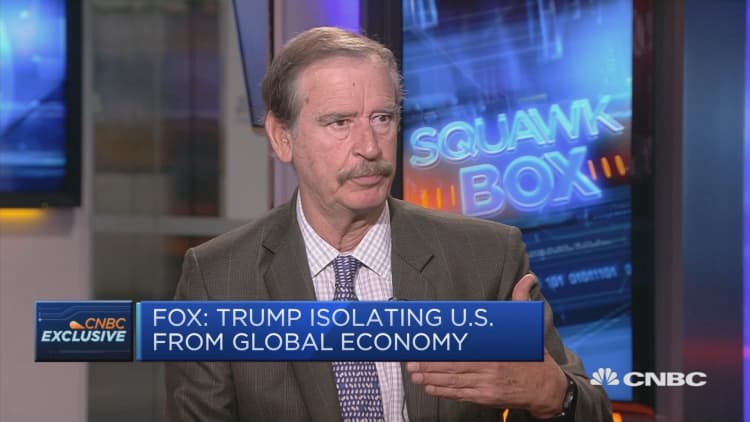Mexico's government will this week send a letter to U.S. House Speaker Nancy Pelosi urging Congress to approve a new trade deal, the United States-Mexico-Canada Agreement (USMCA), President Andres Manuel Lopez Obrador said on Monday.
Speaking at a regular government news conference alongside various ministers, Lopez Obrador said he was sure that Pelosi and Democratic lawmakers would help Mexico, and that he believed the U.S. Congress would approve the deal before the end of 2019.

Nevertheless, deputy foreign minister for North America Jesus Seade, Mexico's chief negotiator for the USMCA, said he was "pessimistic" that the accord would be approved before 2020.
Mexico, which ratified the USMCA earlier this year, is eager for the agreement to be ratified because the country's exports and foreign direct investment are heavily dependent on its unfettered access to the U.S. marketplace.
The USMCA was agreed last year after a lengthy process of negotiation pushed by U.S. President Donald Trump to replace the North American Free Trade Agreement (NAFTA).

